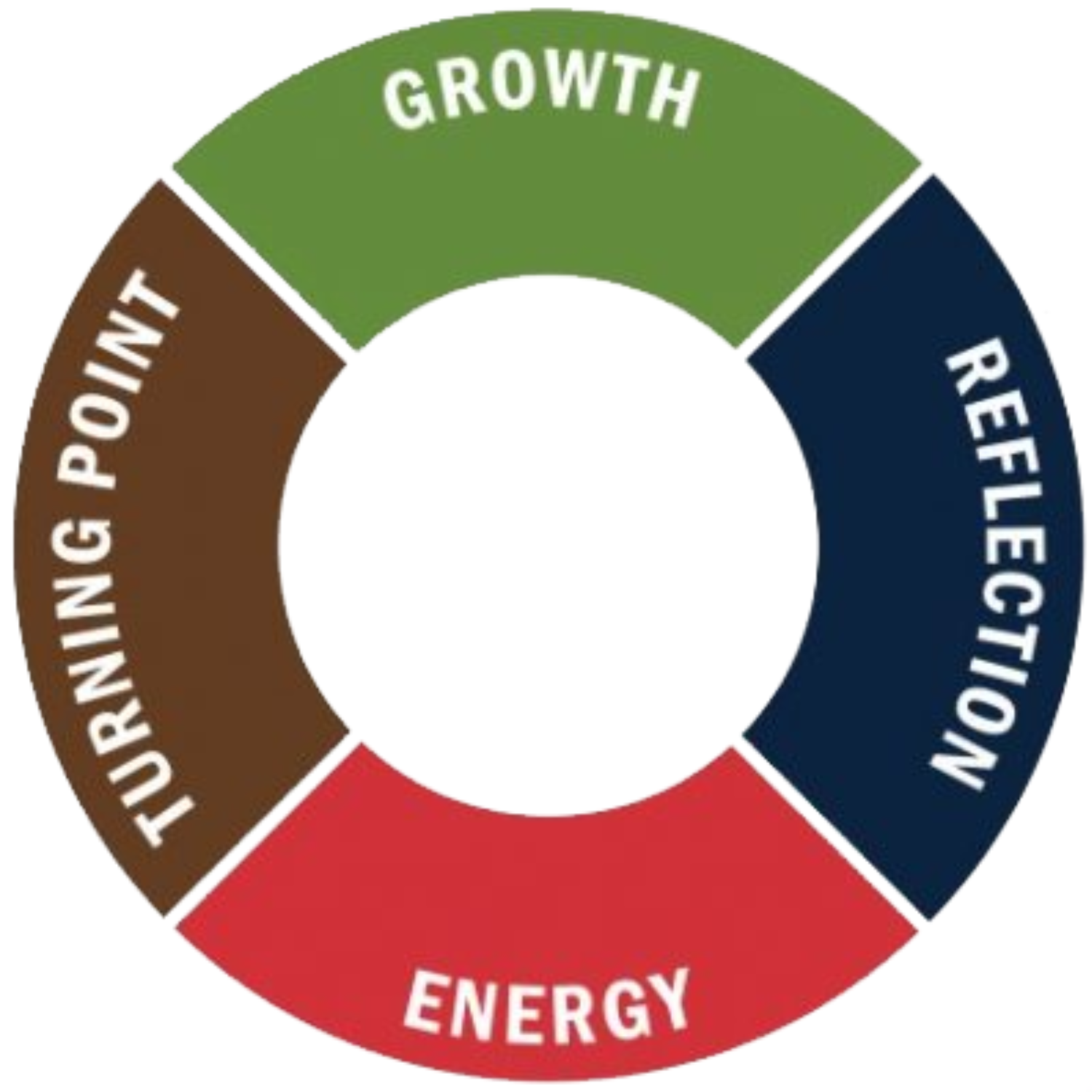
Four Arrow's Mission is to provide unique, challenging, and adventurous experiential learning programs specifically designed for individuals and groups to accomplish personal and team goals, promote character development, while learning through reflection.
We do this through a variety of programming such as out at our Low and High Ropes Challenge Course, Mobile Indoor Programming, and Adaptive Custom Programming.
Understanding the Four Arrows:

Green Arrow – GROWTH
Blue Arrow – REFLECTION
Red Arrow – ENERGY
Brown Arrow – TURNING POINT
Anti-Racism, Equity, and Inclusion
We acknowledge the pervasive nature of systemic racism and the destructive force of prejudice rippling through our society.
As a program, we are deeply concerned with how racism as a form of structural violence currently manifests in the persecution and murder of Black, Brown, Indigenous, and People of Color (BIPOC). Additionally, structural racism has created systems of inequity, often benefiting white individuals while adversely impacting BIPOC communities and continuously placing them at a disadvantage. Racism pervades systems, structures, rules, behaviors, expectations, in person/remote/long term to daily interactions and at times masquerades as normal or neutral.
We all must do our part in condemning the terrible injustices created through racist-fueled actions and make the conscious efforts of being antiracist. We at Four Arrows believe in the concept of leading with empathy and make the intentional decision to frequently, consistently, make equitable choices for our program and the diverse community we serve. Inaction would further uphold aspects of white dominant culture and therefore we affirm our position as an anti-racist program and make commitments of action.
Four Arrows Commits To:
- Engage in critical reflections of our own power, privilege, and positioning
- Embrace discomfort as it leads to paths of understanding and empathy
- Challenge oppressive systems and open lines of dialogue
- Provide extensive and ongoing training for staff on identity, implicit biases, diversity, inclusion and anti-racist initiatives
- Extend outreach efforts to a more diverse representation of our community
- Ongoing audit of policies and culture to ensure a more equitable and inclusive environment to a diversity of backgrounds and perspectives
- Remain vigilant in our learning, recognizing this work does not end


